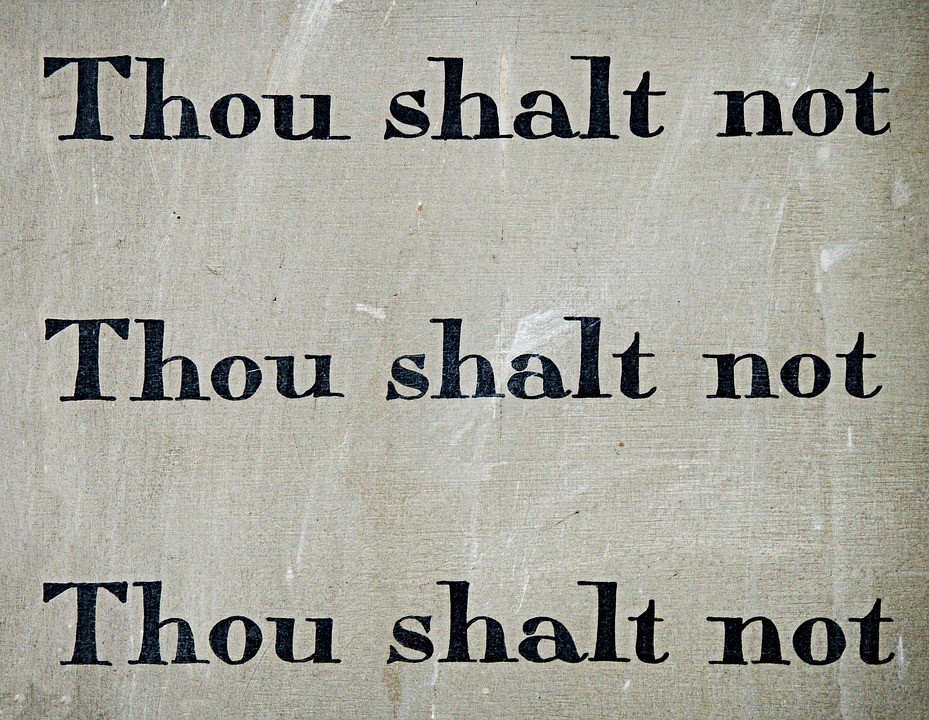
Although many people do not like being told what they can or cannot do, sometimes it is a necessary part of purchasing a property.
When purchasing a property, it is very important to identify whether the land is subject to any existing and binding restrictions. These are known as ‘restrictive covenants’. The law surrounding restrictive covenants is very complex and this guide should serve only as a summary of the law.
What is a Restrictive Covenant?
A covenant is a promise made in a deed to do or not to do something in relation to a property. The nature of a restrictive covenant is negative, as opposed to being positive, thereby restricting the use and enjoyment of the property in some way for the benefit of another person’s land.
For example, house developers are often keen to impose restrictive covenants on individual houses on their developments in order to retain some control over the appearance of the estate. Such restrictions could include not allowing residents to park caravans on their driveways or stating that the property must only be used as a single private family home.
Any such restrictive covenants should be noted on the title deeds to a property. As part of the due diligence process, a solicitor will review the title deeds in detail to check if there are any restrictive covenants affecting the property and if they are enforceable. Therefore, property purchasers are encouraged to inform their solicitor of their intended use of the property so that the solicitor may advise them accordingly.
Property purchasers should also carefully consider whether the current owner of the property is in breach of any restrictive covenants, as well as considering whether they or subsequent owner may breach these covenants depending on their proposed use of the property.
What Can Restrictive Covenants Cover?
A restrictive covenant can relate to almost any matter and typical restrictive covenants include:
• Limiting the number or type of buildings on the land, including preventing the erection of any additional properties or outbuildings, or any extensions to the existing property.
• Prohibitions on the use of the land or property, for example, to residential purposes only.
• Forbidding any undesirable or nuisance activities that may affect neighbouring properties.
• Limitations on the types of animal that may be kept at the property, such as a restriction on any chickens being kept.
In order for a restrictive covenant to be enforceable against future owners of the land, there are certain criteria that must be met including, but not limited to, the covenant must be negative, be correctly registered and intended to burden the land.
What Are My Options if There is an Enforceable Restrictive Covenant?
Breaching a restrictive covenant can end up being costly, so if you fall in love with a property and there is an existing and binding restrictive covenant that will hinder your use and enjoyment of the property, then there are options available to you:
• Restrictive Covenant Indemnity Insurance - the most common approach is to put in place an indemnity policy to protect against the risk of a person with the benefit of the restrictive covenant seeking to enforce it.
Ordinarily, such a policy would provide cover for an indefinite period at a one-off premium and will cover successors in title and mortgagees of the policy holder. This is usually an option if you are unlikely to be able to locate the persons with the benefit of the covenant or if you are purchasing with the aid of a mortgage and the mortgagee will not lend without the policy being in place.
• Agreement between beneficiaries of the covenant - it may be possible to negotiate an agreement between the original parties of the covenant, or their successors in title, to remove the covenant.
Depending on when the covenant was put in place, this task could be straightforward or difficult. Furthermore, there is no guarantee that the landowner would agree to the removal of the covenant.
Please note, if indemnity insurance is being considered, then any contact with the beneficiary of the covenant would likely invalidate any insurance policy.
• Submitting a claim to the Upper Tribunal (Lands Chamber) - alternatively, a claim could be made to the Upper Tribunal to remove or modify the restrictive covenant.
The Upper Tribunal has the power to discharge or modify a restrictive covenant if it is satisfied that either the covenant is obsolete or the covenant impedes some reasonable use of the land.
Applications to the Upper Tribunal can be time consuming and costly. Furthermore, the case law in this area is unclear and turns on a case by case basis, therefore, there would be no guarantee that the Tribunal would accept the claim.
Have More Questions About Restrictive Covenants?
If you have further queries about restrictive covenants or would like to speak to our Cardiff conveyancing solicitors about a specific property, please contact our knowledgeable and friendly team by calling 0808 178 2773.
Alternatively, read more about conveyancing law from our blog.

Read more:
FAQ Series: Can You Claim for Undisclosed Property Issues?
How to Buy a House at Auction: Conveyancing Differences
Buying a House with Cash: Does it Change the Legal Process?
